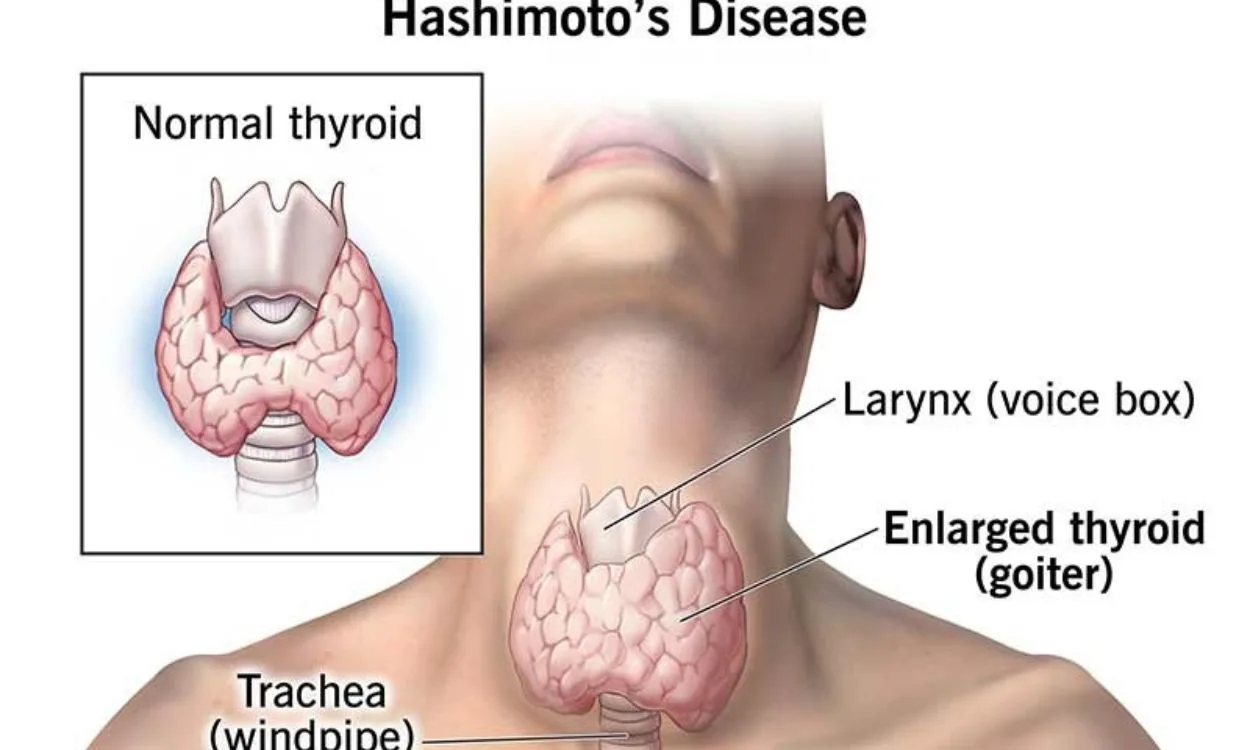What is Hashimoto’s Thyroiditis?
Hashimoto’s Thyroiditis, also known as Hashimoto’s disease or chronic lymphocytic thyroiditis, is an autoimmune disorder that affects the thyroid gland. It is the most common cause of hypothyroidism, a condition where the thyroid gland does not produce enough thyroid hormones. This condition primarily affects women, with a higher prevalence in middle-aged and older individuals.
Understanding the Thyroid Gland
Before delving into Hashimoto’s Thyroiditis, it is important to have a basic understanding of the thyroid gland and its functions. The thyroid gland is a small, butterfly-shaped gland located in the front of the neck, just below the Adam’s apple. It plays a crucial role in regulating various bodily functions by producing thyroid hormones.
Thyroid hormones, specifically thyroxine (T4) and triiodothyronine (T3), are responsible for controlling metabolism, growth, and development. These hormones influence the heart rate, body temperature, weight, energy levels, and many other bodily processes.
The Mechanism of Hashimoto’s Thyroiditis
Hashimoto’s Thyroiditis occurs when the body’s immune system mistakenly attacks the thyroid gland. Instead of recognizing the thyroid tissue as a part of the body, the immune system identifies it as a foreign invader and launches an autoimmune response. This immune response leads to chronic inflammation and damage to the thyroid tissue.
Over time, as the inflammation persists, the thyroid gland becomes progressively unable to produce enough thyroid hormones. This results in hypothyroidism, characterized by symptoms such as fatigue, weight gain, sensitivity to cold, constipation, dry skin, and hair loss.
Symptoms of Hashimoto’s Thyroiditis
The symptoms of Hashimoto’s Thyroiditis can vary from person to person and may develop gradually over several years. Some common symptoms include:
- Fatigue and sluggishness
- Unexplained weight gain
- Depression and mood swings
- Muscle weakness and joint pain
- Constipation
- Dry skin and hair
- Brittle nails
- Irregular menstrual periods
- Sensitivity to cold
It is important to note that these symptoms can also be attributed to other health conditions, making it essential to consult a healthcare professional for an accurate diagnosis.
Diagnosis and Treatment
Diagnosing Hashimoto’s Thyroiditis typically involves a combination of medical history evaluation, physical examination, and laboratory tests. Blood tests are conducted to measure thyroid hormone levels (T3, T4) and thyroid-stimulating hormone (TSH) levels. Additionally, the presence of specific antibodies, such as thyroid peroxidase antibodies (TPOAb) and thyroglobulin antibodies (TgAb), can help confirm the diagnosis.
While there is no cure for Hashimoto’s Thyroiditis, the condition can be effectively managed with appropriate treatment. Treatment usually involves hormone replacement therapy, wherein synthetic thyroid hormones are prescribed to compensate for the insufficient hormone production by the thyroid gland. Regular monitoring and adjustments in medication dosage may be necessary to maintain optimal hormone levels.
Fitpaa: Your Partner in Thyroid Health
Hashimoto’s Thyroiditis requires careful management and personalized treatment to alleviate symptoms and maintain overall well-being. Fitpaa, India’s leading health and fitness app, understands the unique challenges faced by individuals with thyroid conditions and offers comprehensive support to optimize health.
With the Fitpaa app, you gain access to a dedicated team of fitness coaches, nutritionists, and doctors who can provide personalized guidance for managing your thyroid health. The app incorporates the latest research in lifestyle medicine and behavioral therapy to deliver guaranteed results.
Fitpaa’s approach to thyroid health involves optimizing the 11 organ systems of the body, including the endocrine system responsible for thyroid function. By considering every aspect of your life, including metabolism, current lifestyle, and eating habits, Fitpaa creates a personalized Fitpaa Capsule that combines medical therapy, exercise therapy, nutrition therapy, and cognitive behavior therapy.
The Fitpaa Capsule is designed to optimize your metabolism, help your body burn unhealthy fat, and regulate various hormones, including those related to thyroid health. By following your Fitpaa Capsule diligently with the assistance of the Fitpaa mobile app, you can take proactive steps towards achieving your health and fitness goals.
Don’t let Hashimoto’s Thyroiditis hold you back from living your best life. Download the Fitpaa app today and discover a world of personalized support, motivation, and guaranteed results. Your thyroid health matters, and Fitpaa is here to empower you on your journey towards overall well-being.









